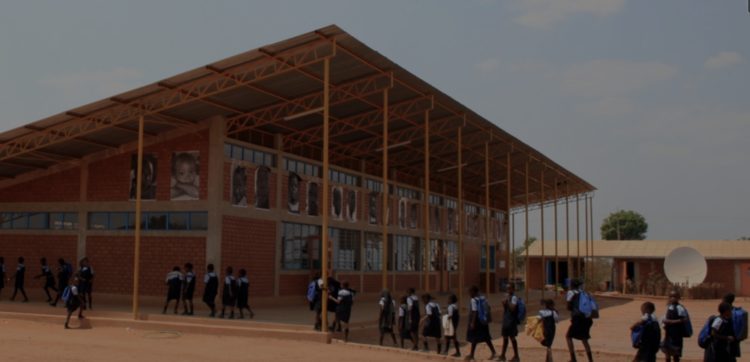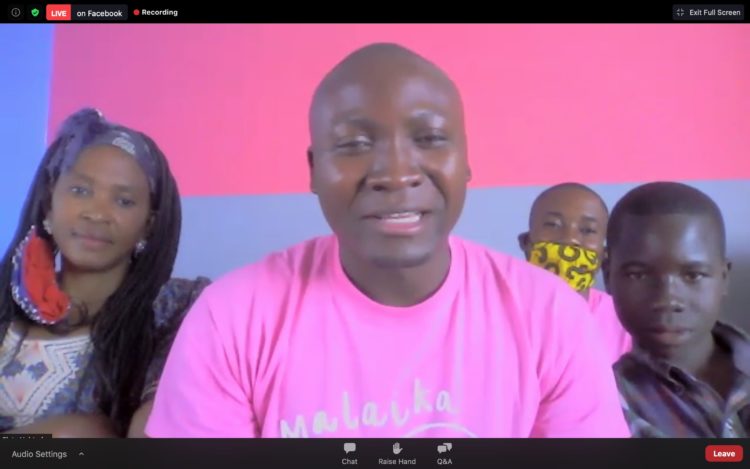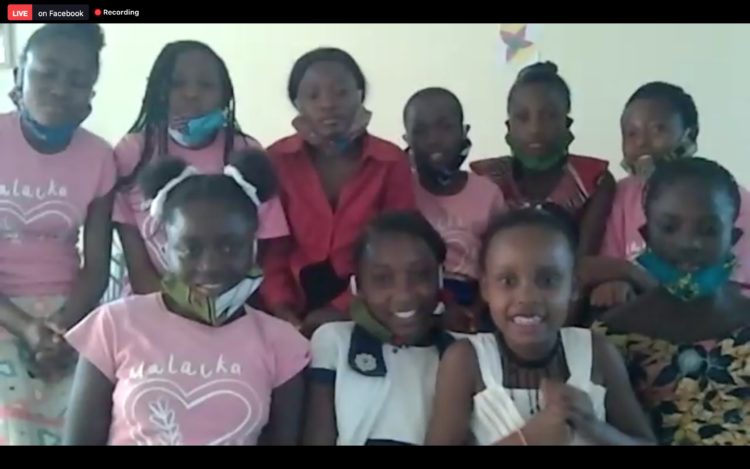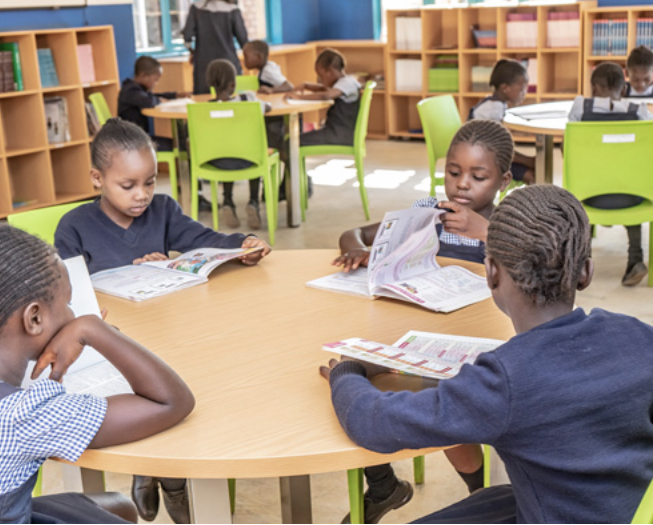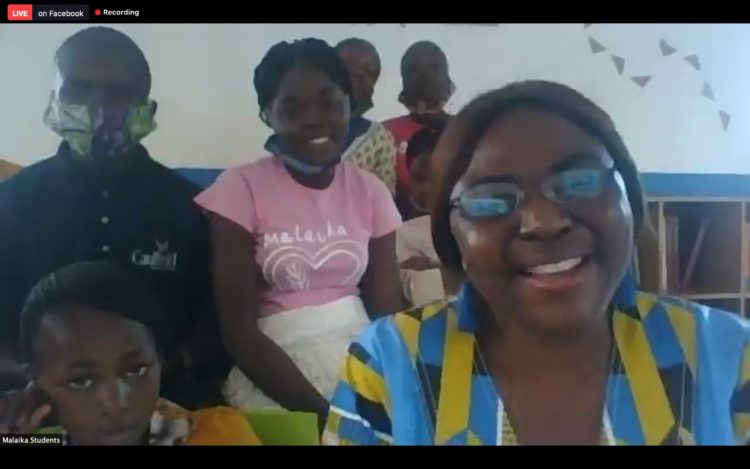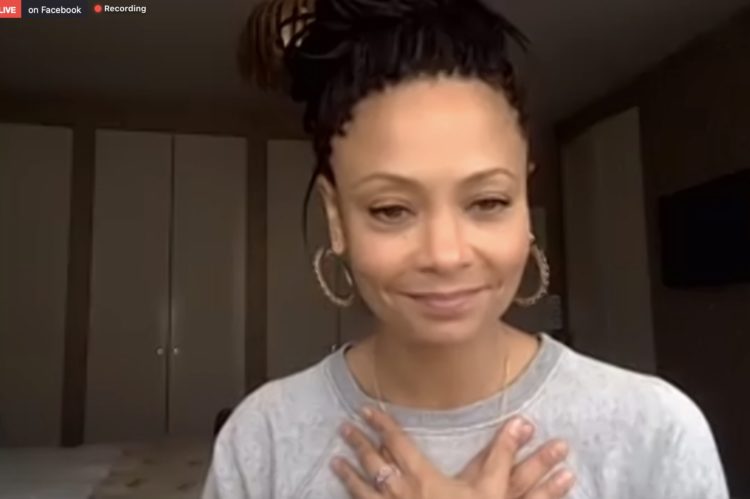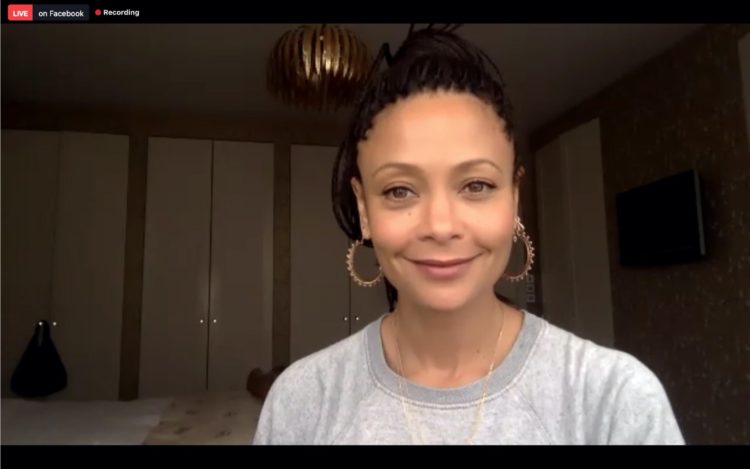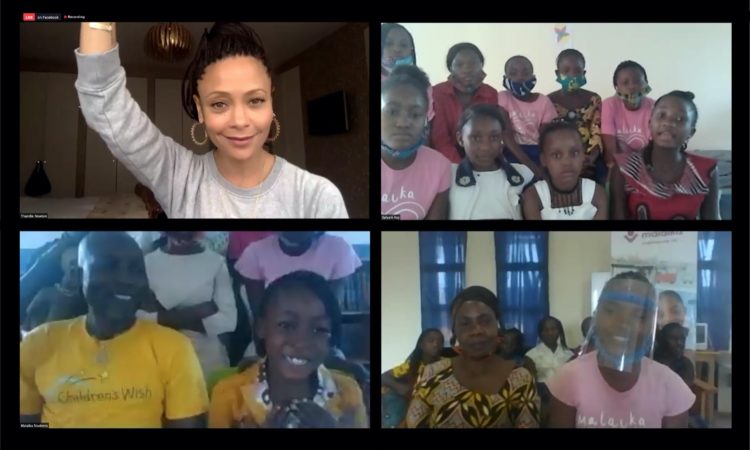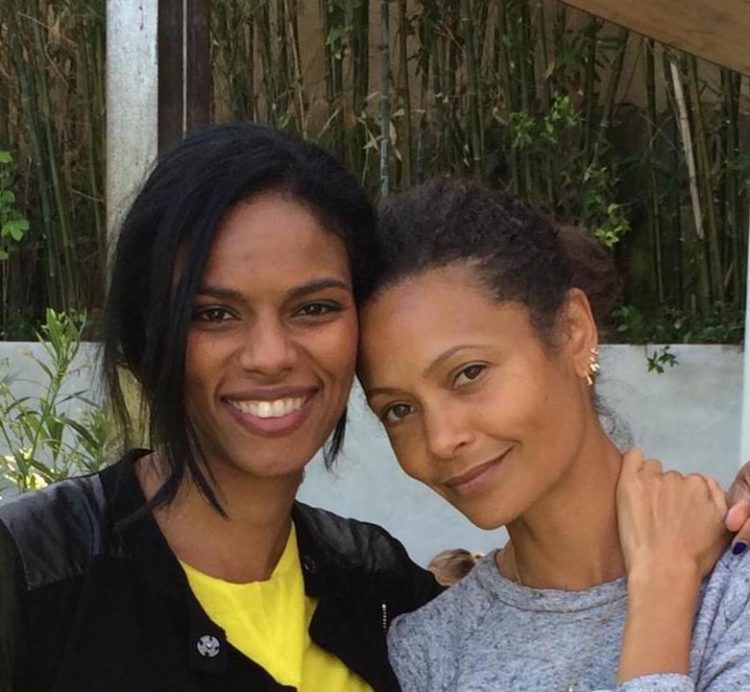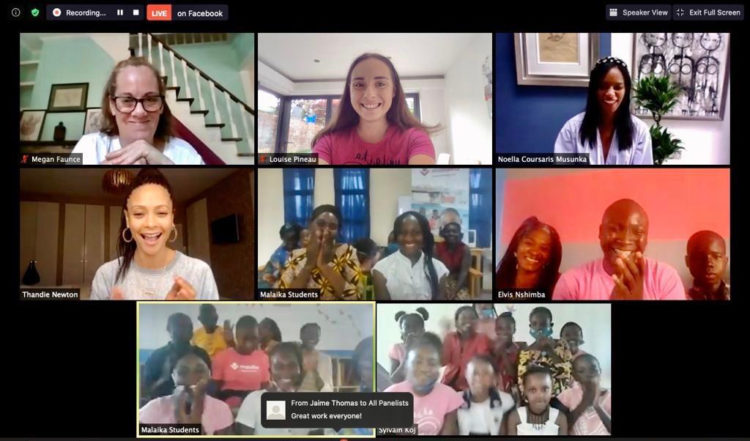One of the silver linings of life in lockdown is the time we are suddenly able to devote to Zoom gatherings and Facebook Live sessions. Today, I spent an hour and a half on my laptop with Noëlla Coursaris Musunka, a model turned education entrepreneur and activist, and a few members from her borderless community of students and supporters.
As the founder of Malaika, a community-driven organization providing education to girls in her native Democratic Republic of Congo, Coursaris Musunka has been pushing a model built on the belief that “an educated woman is more likely to give back to her community, to inspire others to attend school, and to cultivate a sense of independence among both her peers and the next generation.”
As many people in different parts of the world have gotten used to sheltering in place over the past few months, Coursaris Musunka has been hosting these Zoom gatherings as a way for Malaika supporters to get to know the students at the Malaika School, which is located in Kalebuka, Lubumbashi, in the Southeast of the DRC, not far from the Zambian border.
The Malaika School, which was inaugurated in 2011, provides free primary and secondary school education to 346 girls. With daily classes taught in French and English, the custom-built curriculum covers math, science, information technology, the arts, and much more. Except that, right now, the school is closed, because of the ongoing Covid-19 public health crisis.
The online gatherings—today’s was the third in a series—have been refreshing, in part because Coursaris Musunka has been inviting some of her friends as hosts. These special guests, who join in from different parts of the world, get to interact with the students as role models, friendly and relatable faces cheering the young students on and providing canvases for their biggest and wildest dreams.
Although videoconferencing fatigue has set in for many of us, Malaika’s relaxed Zoom environment felt welcome on this Friday, especially as we were able to engage directly with the students by asking questions, while evaluating the actual impact of this kind of philanthropy, which is entirely based on trust, fiscal responsibility, and on-the-ground dedication.
Today’s special guest was the British-Zimbabwean actress Thandie Newton, who is best known for her roles in Beloved, Mission: Impossible 2, Crash, and the science fiction-western series Westworld. Newton, who seemed to be speaking from her bedroom, opened the session by admitting that “with everyone in lockdown, I just wear tracksuits.”
https://www.instagram.com/p/CCdfYfZnWO7/
Newton heard the students’ individual stories, and encouraged these Malaika cohorts to work hard, in order to create new industries for the future. She said that it was important for the girls to aim high, because they, too, could become Prime Ministers, or Presidents. She said these students can “outstrip everybody.”
The encouragement seemed particularly welcome at this particular time because, similar to other educational institutions around the world, the Malaika School had been struggling since lockdown began in the DRC. A Malaika educator named Rebecca, from Katanga, gave us the context. Having studied English at the University of Lubumbashi, she broke down the challenges in simple language.
“The Eastern part of DRC has been at war for a long time,” she said. “The pandemic is a disaster for the Malaika school, because the meals are important for the students, many of whom were used to eating just one meal a day. Others don’t even get that one meal. Also, the school has a nurse and basic health services that the students can benefit from, whereas when they are home, we don’t know what is going on. Most of the diseases around here can kill our students so easily.”
Rebecca went on to mention a student named Léa, who died at the beginning of the lockdown, because her parents never informed the school that she was ill. “The worst effect of the lockdown has been on adolescent girls,” she added, “because when they were at school, they were able to escape from harmful traditions. Now, they are home, facing prostitution, early marriage, dangerous abortions, and also domestic violence.”
Never sentimental, Rebecca spoke of the Malaika School’s aspirations, revealing that the intent is to train future leaders for Congo, and for the world. Programs and evaluation manager Elvis Nshimba said he often acts as a coach. “Malaika is an ecosystem that can be replicated all over the world,” he insisted, explaining how the school’s affiliated programs for vocational training, which go from embroidery all the way to financial literacy, now reach more than 30,000 people in Kalebuka and surrounding villages. Nshimba added that practicing sports had also had great, measurable impact across the community.
Many students arrive at Malaika School speaking only Swahili. A student named Joelle got in front of the computer and spoke confidently in both English and French, revealing that “mathematics is my favorite lesson, and I want to become a doctor.” Another student explained how she is into coding, and that she wants to become an engineer. And yet another student disclosed that she wants to be an architect.
Malaika, which started with just one building, has now expanded to 10 buildings. “The entire staff is from the Congo,” Coursaris Musunka told Newton. “It’s so important to reinvest.” The school provides two meals a day to all the students and staff. Coursaris Musunka and her team want to ensure that the students have all the support they need to become successful students. This support helps relieve a financial burden on families.
The teacher everyone calls Maman Thérèse has the distinction of being Malaika’s first employee in the DRC. She has seen Malaika grow from an idea to what it is today. As soon as she appeared on screen, she spoke of the importance of basic hygiene tips for the girls, whose bodies are changing. “Hygiene is important,” she said, “but we also train the girls on how to take care of their body, of their house. It’s all part of working towards making those dreams for the future come true.”
A participant asked a question about masks, and the answer was, “Our Mama Ya Mapendo program has sewn over 500 masks that are being distributed to community members. We can’t export them right now, but we’ll let you know as soon as we can. In the meantime, the people of Kalebuka have the best masks in the world!” Apparently, a Malaika advisory board member/mathematician/professor named Jonathan Mboyo Esole and an IT teacher named Donat Tshikut have also been working with the girls to produce 90 3D printed face shields every day and should have 1,000 completed soon.
Below, is an excerpt from the Q&A session between the Malaika School students and Thandie Newton.
Thandie, do you have any children?
Yes, I have three kids, Ripley, who is 19; Nico, who is 15; and Booker, who is 6.
How does the coronavirus affect your career?
When I was in America, I was making a film, and I had to stop, and fly back to England. With the virus, we cannot have large groups together, and for films you need to have lots of people working together, doing makeup, and all kinds of things.
What inspired you to become an actress?
When I was little, I liked to make people laugh, so I started out dancing, and I would ask people, including my parents, to pay me money if they wanted to watch me. I would make my own invitations, and people would pay to see me perform. My mom is from Zimbabwe, and when she came to England, she trained to be a nurse. She went back to Zimbabwe with her education, and she was so excited. Education was so important to her. I was 16 when I made my first film. Then, I went to Cambridge to get a degree in anthropology before I asked my mom again if I could now become an actress. Finishing school was very important to her. If I hadn’t finished school, my mother would never have spoken to me again.
The conversation between Newton, Coursaris Musuka, the students and the educators felt authentic, inspired, and driven by compassion instead of narcissism, especially compared with the shallow dialogs we are constantly subjected to in this age of celebrity activism.
Having participated in the previous two Zoom discussions, which were hosted, respectively, by the Grammy-award winning musician Eve and the British TV personality June Sarpong, I asked Coursaris Musunka why she felt it was important for the Malaika students to engage with celebrities.
“All three women who hosted our webinars are inspirational and I have much admiration for their lives and their careers. Eve is an ambassador for Malaika and has visited the school in the DRC. Both Thandie and June Sarpong are great supporters of Malaika and our work advocating for girls’ education.”
“It is amazing for Malaika students to speak to women who have achieved a lot in their lives. For them to chat to a singer, a director at the BBC, and an actress, and to be able to ask them some questions was a special opportunity for them. One student asked June why she chose to work in TV. June replied that she was always talking a lot and realized that she could get paid to talk a lot! That kind of answer can inspire the girls to think about their strengths and their preferences for their future career. They can have aspirations to work towards making it real.”
“The experience can help the students to realize that nothing is impossible for them,” she added. “It also introduces them to some role models. Eve, June and Thandie are all strong and successful. They choose to give back out of their success and they view other people, no matter their age or circumstance, as valuable. When Thandie said, ‘Wow, my DNA is 50 percent from Congo, ha ha,’ you realized that she is an amazing person. She made you feel like we are all one family.”
If you would like to support the work of the Malaika School, please feel free to visit www.malaika.org/donate

